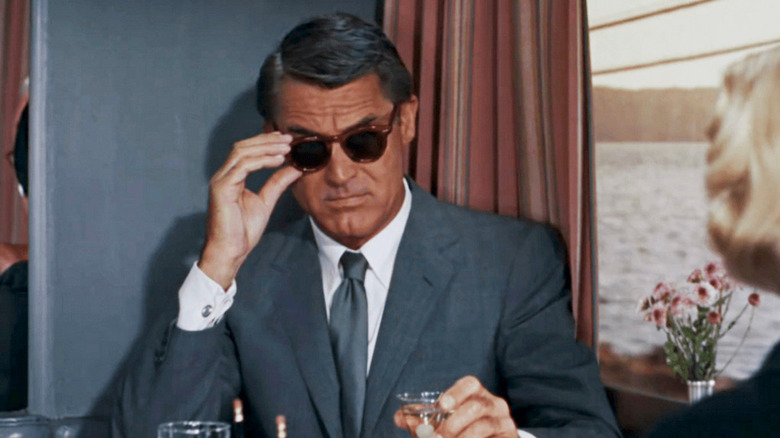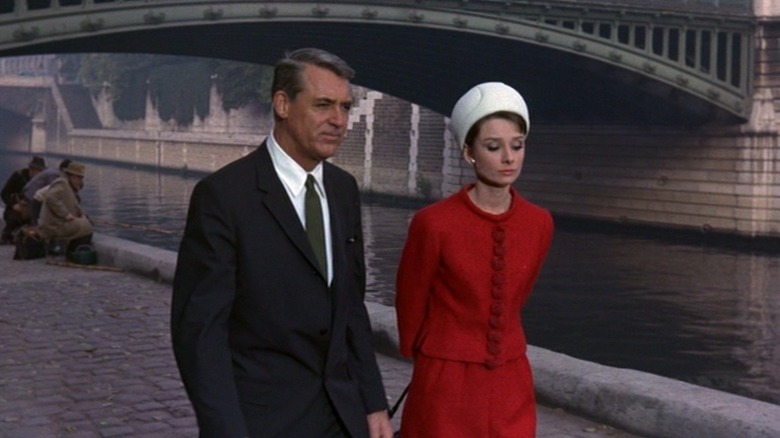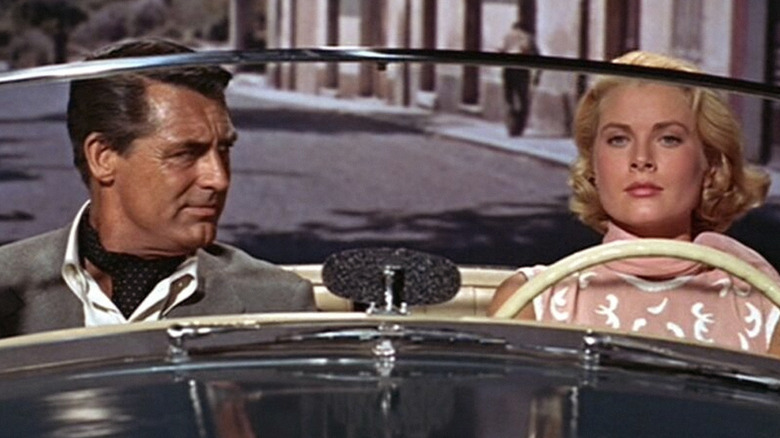Personal Experience Taught Cary Grant It Was A Good Idea To Stay Retired
Cary Grant's retirement was very likely one of the more disappointing developments of the '60s. At age 62, Grant might have been getting on in years, but he was still the same suave, debonair love interest in the eyes of the public — even if he could no longer embody that role in his later films. Still, the actor was beloved the world over, and he probably could have kept on acting without losing many fans. But for Grant, that was out of the question, especially after a particular experience in his youth set his mind to retire for good.
Never meet your heroes
Though Grant stopped appearing in films after 1966, he'd continue to tour the country in auditorium performances he'd call "An Evening With Cary Grant." The performances were just that: casual, sit-down affairs where the actor would converse with fans and answer their burning questions. And naturally, Grant was often asked whether or not he would ever reconsider his retirement. His answers ranged in ambiguity, but on one evening recorded by GQ, Grant explained why exactly he decided to retire when he did:
"When I was a young man, I saw an actor I regarded so highly, a very big star in the silent movies. And when I saw him years later in a film, I was so disappointed. He was not the same man. He was the same man but, my goodness, he didn't look like the same man. I was very disappointed that he had aged, or was aging."
Grant knew very well that he could have transitioned into "older man" roles without missing a beat. But he was more concerned about wearing out his welcome in Hollywood and ending on a high note, as opposed to disappointing his fans. The actor was also notoriously picky about the scripts that he chose, and his growing disenchantment with the changing landscape of Hollywood further influenced his decision to retire.
An intriguing proposition
Grant was more or less resolved when he retired in 1966. The birth of his daughter, Jennifer, was another major influence in his decision. Nevertheless, his fans and collaborators wouldn't drop the idea so easily. Funnily enough, Grant had already been coaxed out of premature retirement once before, for the Alfred Hitchcock film "To Catch a Thief."
"I got a wire from Hitch saying, 'Come back. I've got this wonderful new actress,'" Grant told GQ. "Well, if Hitch had said I'm going to make a movie of the telephone book, I'd be there. So I came back. He said, 'I have this new girl, and she's terrific.'"
Of course, that "wonderful new actress" turned out to be Grace Kelly, who Grant would later call one of the best he'd ever worked alongside. "To Catch a Thief" was notably the start of a renaissance for Grant's career. Without that, we wouldn't have "An Affair to Remember," "North by Northwest" or "Charade," which marked Grant's last role as a love interest. It's a miracle that Hitchcock managed to lure Grant back to films at all, and though he'd try to reel him out of his second retirement throughout the '60s and '70s, nothing ever came of it. Grant had made up his mind, and it was indelibly disappointing, but you've gotta love a man that sticks to his guns — especially if that man was one of the greatest actors in the Golden Age of Hollywood.


